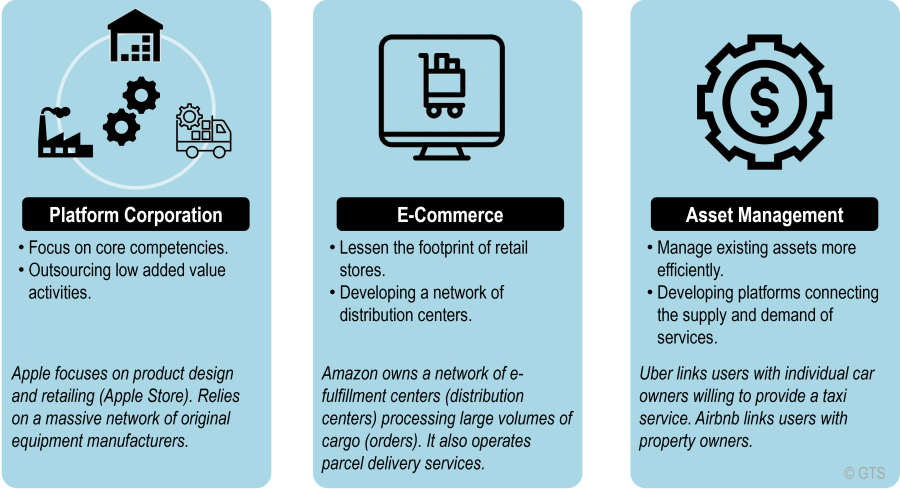
The perceived dematerialization of the economy leans on three main paradigms:
- The outsourcing paradigm. Several functions performed by a corporation, particularly manufacturing, can be outsourced to a third party, often in another country (offshoring). This gives the impression that the corporation is much less involved in material assets, while this function has been transferred to a third party. Several leading corporations, such as Apple, Ikea and Dell, adopt a platform strategy where they keep their higher added value functions and outsource the remaining to third parties.
- The footprint paradigm. Several corporations dependent on information technologies, particularly e-commerce, have locational and footprint requirements different to their conventional counterparts. For instance, e-commerce does not require accessible retail locations, but relies on distribution centers often located in suburban areas. As the share of consumption serviced by e-commerce increases, the retail footprint decreases, as goods are transited through different channels.
- The asset sharing paradigm. The setting of exchange plaforms has allowed the setting of virtual markets where asset owners are able to make available their services as a lease. For instance, ridesharing platforms allow vehicle owners to rent mobility services in a real-time basis through supply and demand matching mechanisms. The outcome is a higher asset utilization and turnover.